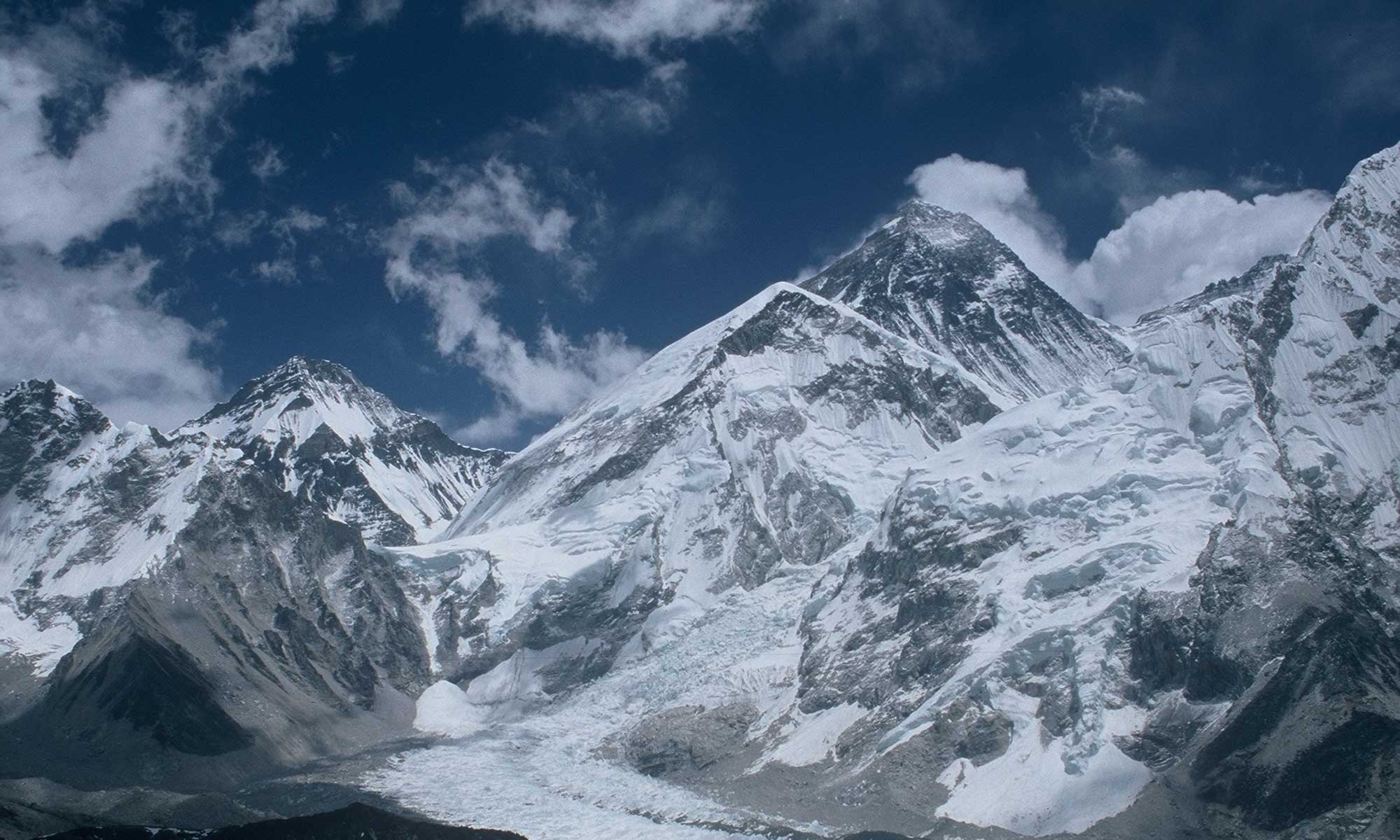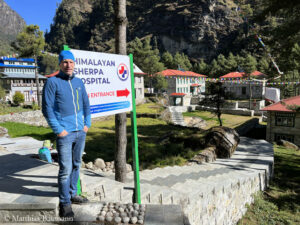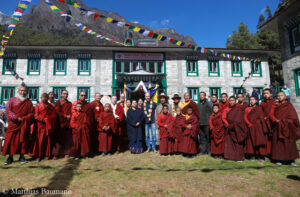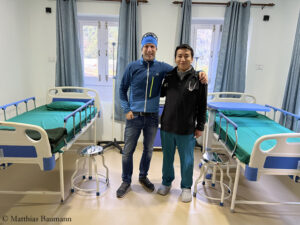“It was very emotional,” Matthias Baumann tells me. In November, the chief physician from Tübingen was in Nepal with his family. It was a trip of three generations: Along for the ride were his life partner Eva, their joint two-year-old son and Matthias’ parents, 82 and 78 years old. The family trip took the Baumanns to Phakding in the Khumbu region, where the “Himalayan Sherpa Hospital” was inaugurated after five years of construction. Even state president Bidhya Devi Bhandari was present to cut the ribbon on the front door of the new clinic. “This was special for the people of Khumbu,” Matthias says. “It’s not too often that they get a visit from the head of state there.”
Open to all
15 beds are available in the hospital, plus a laboratory and a pharmacy. “The first patients have already been treated.” Soon, the clinic will also receive an X-ray and an ultrasound machine. Phakding is located on the legendary trekking route to Everest Base Camp. For most tourists who land at the airport in Lukla, the first stage of their trek ends in the village at around 2,600 meters after about three hours of walking.
“The hospital is primarily for the locals. But of course, it is open to anyone who needs help,” Baumann says. Locals have to pay a rather symbolic treatment fee of 100 rupees (the equivalent of 1.15 euros). Foreign trekking tourists or mountaineers have to dig a little deeper into their pockets to receive treatment: For them, the fee is 75 dollars (71 euros).
A circle is closing
Until now, the nearest clinic for people in Phakding and the surrounding hamlets was in Lukla – or in Khunde, about four hours’ walk up the valley, where Everest first ascender Sir Edmund Hillary founded the first hospital in the Khumbu in 1966. Matthias Baumann does not want the clinic in Phakding to be seen as a competitor: “Quite the opposite. The doctors at the hospital in Khunde supported and advised me during the project. They are pleased that there is now another clinic in the Everest region.”
Pasang Sherpa is the new hospital’s first Nepalese doctor. Baumann has a special relationship with him. Pasang is the son of his old friend Pemba Sherpa, whom he had met more than 25 years ago at an international mountain guide course in Chamonix. “Pemba was the reason I came to Nepal once,” Matthias says. Pemba’s son graduated from the Hillary School in Khumjung and later studied medicine in the Philippines. “And now Pasang is the first doctor at our clinic. In a way, this closes a circle. That makes me very happy.” As a doctor himself, Baumann wants to lend a hand whenever he is in Phakding. And he invites medical personnel from abroad: “We have a residential house for all those helping. Everyone is welcome.”
Aid projects for Nepal since 2014
In 2009, Matthias had scaled the eight-thousander Cho Oyu in Tibet – without bottled oxygen. In 2011, he attempted Mount Everest – with a breathing mask. Around 200 meters below the summit, he had to turn back due to a mishap: When he wanted to change the oxygen bottle, he discovered that it was empty. In 2014, Baumann was back on Everest. At that time, an avalanche in the Khumbu Icefall killed 16 Nepalese climbers, and the season ended prematurely. After the accident, Baumann collected donations for the bereaved families of the victims.
A year later, Matthias was again on hand in the time of need. After the devastating earthquake in Nepal at the end of April 2015, the German trauma surgeon operated on numerous people injured in the quake at a clinic near Kathmandu. Afterwards, he collected donations for the reconstruction with the German aid organisation “Sherpa Nepalhilfe“.
Three schools in the Khumbu could be rebuilt with the money, as well as a building of the community center in the village of Thame. Currently, Baumann’s foundation is building another school in the neighboring Rolwaling Valley. “My father said to me in Phakding, ‘All this is much more important than climbing Everest,'” Matthias says. “So did the deadly avalanche in the Khumbu Icefall turn into an avalanche of good deeds?”, I ask him. “In a way,” Baumann replies. “That’s nice, isn’t it?”
P.S.: For all those who want to support Matthias’ projects, here are the account details: Sherpa Nepalhilfe e.V., Volksbank Tübingen, IBAN: DE27 6039 1310 0309 8640 03, BIC/SWIFT code: GENODES1VBH, intended purpose: Nepalhilfe.




